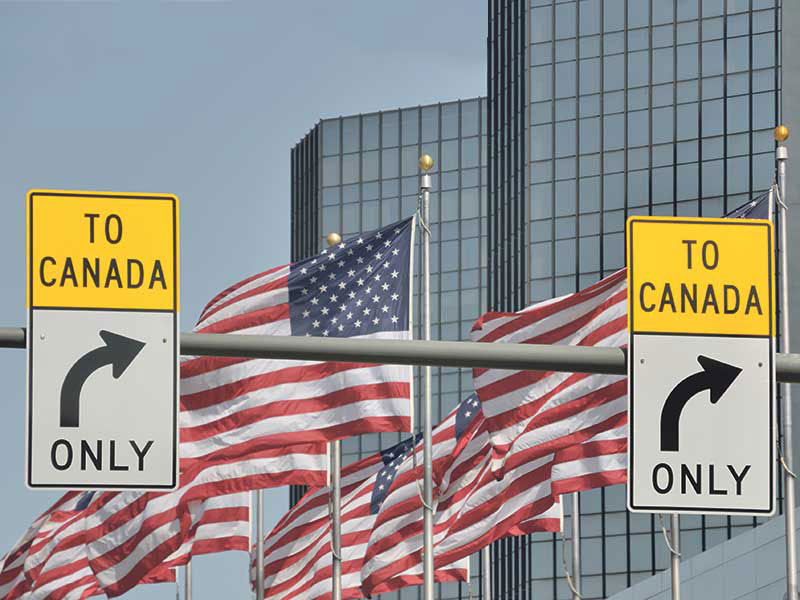
This article appears in the March 2023 issue of Investment Executive. Subscribe to the print edition, read the digital edition or read the articles online.
Canadians planning to move abroad should consult their financial and tax professionals before deciding whether to keep a TFSA.
From a Canadian tax perspective, there are no barriers to non-residents holding on to their TFSAs while they are out of the country, said Marly Peikes, a partner with O’Sullivan Estate Lawyers LLP in Toronto.
The accounts are covered by exemptions to the Income Tax Act’s deemed-disposition rule that generally requires emigrants to pay capital gains tax based on the fair market value of all their property when they depart Canada.
Still, Peikes said her firm has found potential issues with clients leaving the country. Although the value of any TFSA withdrawals made by a non-resident will be added to an accountholder’s contribution room for potential future use, no fresh contributions can be made until the person resumes Canadian residency for tax purposes. TFSA holders also are unable to accrue fresh contribution room for the years they are a non-resident of Canada.
“The other caveat is that the account might be taxable in the new country, so the person would have to get local tax advice to see if it’s worthwhile to keep the account while they’re a non-resident of Canada,” Peikes said.
Canadians heading to the U.S. specifically may need to take action, said Andrea Thompson, founder of Modern Cents, an advice-only financial planning firm based in Mississauga, Ont. The U.S. Internal Revenue Service does not recognize the TFSA’s tax-sheltered status — potentially stripping the accounts of their most attractive feature. Even if your client doesn’t withdraw from the TFSA while in the U.S., taxable distributions in the account would lose sheltering.
In some cases, U.S. tax authorities may also consider TFSAs to be foreign trusts, which come with additional requirements for annual reporting and form preparation, not to mention expenses — further negating the TFSA’s benefits.
“Since you can always contribute withdrawn funds in future years, I have advised clients to withdraw [from] or close their TFSA” in these circumstances, Thompson said.
Shiraz Ahmed, senior financial advisor and portfolio manager with Raymond James in Mississauga, Ont., agrees. Ahmed, who is licensed on both sides of the Canada-U.S. border, said emigrants who close their TFSAs before becoming a Canadian non-resident will save themselves a lot of hassle.
“If you earn U.S. income, you might want to look at U.S. structures” such as a Roth IRA, Ahmed said, which operates on a similar basis to the TFSA.
Derek de Gannes, principal of de Gannes Tax in Toronto, said that before leaving Canada, prospective non-residents should suspend any pre-authorized debits set up to fund their TFSA.
“I recently dealt with a client who left Canada and continued contributing to their TFSA in the normal course. It takes the CRA a while to catch up, but they do, and then they impose penalties,” de Gannes said.
Penalties for unauthorized contributions are punitive, totalling as much as 1% of the excess per month until it is removed or the accountholder re-establishes Canadian tax residency.
Canadians returning home also can get themselves into trouble by miscalculating their contribution allowances, de Gannes warned.
While returning residents are allowed to reclaim contribution room for withdrawals made while they were away, de Gannes said, their overall limit is reduced for every full calendar year they are a non-resident. Therefore, they cannot rely on the cumulative TFSA contribution limit that is quoted for Canadian residents who were over 18 when the accounts were introduced in 2009 ($88,000 as of Jan. 1).
And taxpayers should not expect much sympathy from the CRA when it comes to penalties, even if the overcontribution was accidental.
“The sense I get from their technical interpretations is that [the CRA is] not going to be lenient at all, which speaks to the government’s need for money. They’re not giving up on any potential revenue sources — big or small,” de Gannes said. “These days, even an honest mistake is not a ‘get out of jail free’ card.”
In the December 2022 Federal Court decision Howard v. Canada (Attorney General), a taxpayer sought a judicial review after receiving a CRA penalty of almost $2,000 — almost 20% of her annual income — for an overcontribution.
The woman had contributed $63,500 to her TFSA in late 2019 plus another $6,000 in January 2020. This put her $15,000 over the limit because her financial advisor had calculated her contribution room using three years (2009, 2010 and 2011) during which she was not a Canadian resident.
The taxpayer requested relief — explaining that she had missed the CRA’s written warning to remove the excess amount because she was stuck in the Dominican Republic following the onset of the Covid-19 pandemic — but her appeal fell on deaf ears.
Federal Court Justice Russel Zinn had more sympathy for the taxpayer, ordering a new hearing before a different independent reviewer after concluding that the original decision failed to properly address the taxpayer’s explanations.
“It may be that the result of the new review will be the same,” the judge wrote. If so, he advised the woman to seek redress from her bank-based advisor, calling the advice to invest in a TFSA for someone on such a low income “quite incomprehensible.”